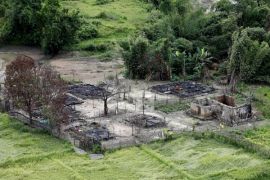"All problems should be resolved peacefully through dialogue," he said briefly after giving a press conference on the sidelines of his visit to Nusa Dua, Bali, to attend the 4th ASEAN-UN Summit earlier in the morning.
A number of incidents in disputed parts of the South China Sea had caused tensions in the region which is believed to hold vast oil and gas reserves. The disputes involve China and four ASEAN members namely Vietnam, the Philippines, Malaysia and Brunei Darussalam.
Earlier, Baladas Ghoshal, an observer with Jamia Millia University said, with regard to the South China Sea disputes, ASEAN should strive to encourage China to agree to resolve its disputes with some ASEAN member countries over the Spratly Islands in a peaceful way.
"Indonesia is not involved in the disputes but has for a long been active in setting up confidence-building measures with the objective of diffusing the tensions and avoiding the eruption of any major conflict in the region," he said.
The remaining members of ASEAN are not involved in any way in the disputes but are concerned about the South China Sea as a potential flashpoint in the Asia-Pacific region.
"ASEAN can choose to resolve its security dilemma vis-a-vis modernized confident and resurgent China. Such a strategy, however, will require ASEAN to play a constructive role in the relationship between the United States, Japan, India and China, the key powers that will determine the future of Asia-Pacific," he said.
Baladas said that it can be done only by maintaining a careful balance in its dealings with the key players that ASEAN can play a constructive role in regional diplomacy and create a space within which the member countries can pursue their economic and political developments in a climate of peace and stability. (*)
Editor: Aditia Maruli Radja
Copyright © ANTARA 2011









